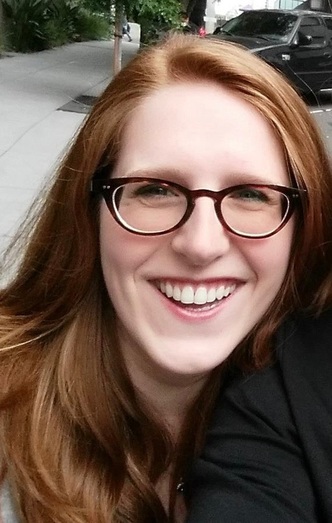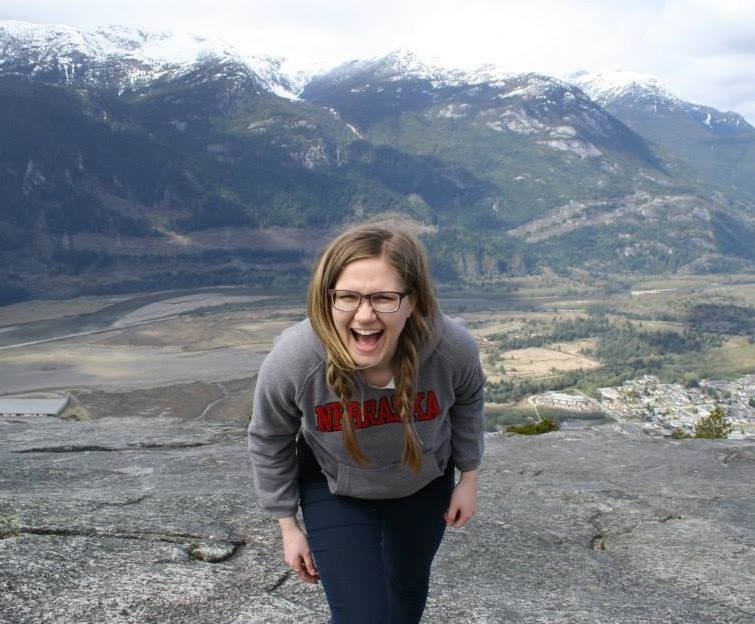As an undergraduate student, navigating the conference landscape can be difficult and anxiety-provoking, especially if you aren’t going to the conference with a group of other undergrads. Have no fear! Experienced conference-goers are here to give you some tips and tricks to maximizing your experience and also having fun at the conference. Student Section’s Clinical Liaison, Shelby Arnold, has attended the conference twice as an undergrad, and consulted with Mark Houck, the Project Coordinator of the Juvenile Justice Research and Reform Lab at Drexel University, who has also attended the conference as an undergrad.
0 Comments
You probably know some of Emily Haney-Caron's impressive accomplishments -- after all, you elected her your Chair for 2016-2017! Here is a little more personal introduction to Emily, your current Chair-Elect. Don't forget to catch her welcome at the Student Committee Welcome Breakfast next Thursday at 9AM!If you could only have three non-psychology books to have on your shelf, what
would they be? There’s no way I could pick only three; I love reading and love books, and have a very hard time getting rid of them (instead, I just keep buying more bookshelves). I hope to never have to narrow it down more than that! What is your favorite city? Probably Philadelphia! It is a great place to live, and I love being able to walk everywhere I need to go. What is the best thing about the AP-LS Conference? I enjoy catching up with people I only see at AP-LS each year. What will you miss about being in grad school? Having time built into my schedule to learn new things is pretty great! I think I’ll probably miss that the most. What is one professional goal that you have? My primary professional goal is to structure my career around work that feels meaningful to me; everything else is secondary to that. Can you believe that the annual AP-LS Conference is next week? Neither can we. Today, learn a little more about your Student Committee Secretary, Tara Ryan. She's the one that keeps track of all of the important details that might otherwise fall through the cracks. From another country no less! Here are a few personal facts that might help you feel more comfortable striking up a conversation when you see her next week!What first got you interested in this law-psychology? I first became interested in law-psychology when I took intro psych at my undergrad institution, Creighton University, with Dr. Matt Huss. From there I pursued opportunities such as an undergraduate internship at a residential correctional facility facilitating sex offender therapy. This experience solidified my interest in working with a forensic population and that I wanted to pursue a career as a forensic psychologist. If you could only have three non-psychology books to have on your shelf, what would they be?
Have you ever had a job you really loved? Just prior to graduate school, I worked on a couple of different research studies as a project manager. One in particular was a study looking at a new treatment for combat-related PTSD. I had the opportunity to work with a number of military veterans and I found this work incredibly rewarding. If you weren't in grad school, what would you be doing instead? My path to forensic psychology was certainly not linear - I think this can be attributed to having a lot of diverse interests. Although I obtained a BS in Business Administration (finance) and also spent several months post-graduation working for a city planning agency, I think my interests in politics and policy may have eventually led to a career in the federal government. What is the best thing about the AP-LS Conference? There isn't just one. Some of my favorite things about APLS are getting to connect with prior lab members and mentors, getting to (usually) explore a new city I've never been to, and seeing all of the cool things people in our field are doing. I always leave APLS energized and with too many ideas to pursue. What is one professional goal that you have? We tend to work with stigmatized people, either because of their mental illness, a crime they have committed, or both. In all aspects of the work I do, I would like to increase the awareness, understanding, and most importantly empathy for these individuals. |
About the Editor:
The American Psychology-Law Society (Division 41 of the American Psychology Association) Student Committee is composed of elected student leaders representing the interests of our student members. Categories
All
Archives
June 2024
|
|
Except where otherwise noted, content on this site is licensed under a Creative Commons Attribution 4.0 International license. Icons by Icons8
|
|



 RSS Feed
RSS Feed
